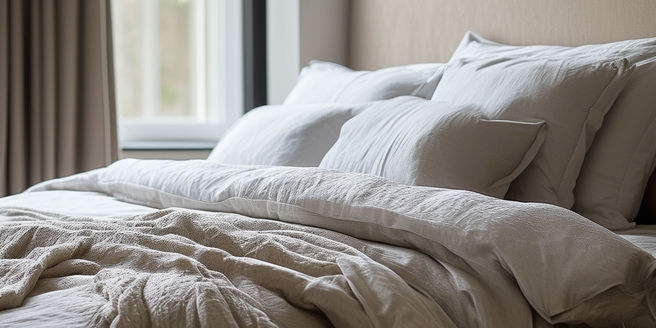
Understanding the Importance of Healthy Sleep Habits
Sleep, essentially important like eating, drinking, and breathing, plays an irreplaceable role in restoring energy, engaging in vital repair work and processing information for our minds. Its importance to our health systems is grossly underemphasized. Insufficient sleep or poor sleep quality can lead not only to physical conditions like a weakened immune system, but also is linked to mental health problems such as anxiety disorders and clinical depression. Our ability to remain cheerful and engaged, our cognitive function, mood and mental resilience, all demand quality rest. Hence, good sleep hygiene and quality sleep is paramount for overall wellbeing.
Components of a Successful Bedtime Routine
Establishing a successful bedtime routine demands activities that help you unwind, like reading or gentle meditation, and physically comforting procedures like a warm bath. Other beneficial activities can include listening to calming music or a gentle stretching routine, which not only alleviate body aches but also soothe the mind for a peaceful slumber. Consistency is crucial in following the same bedtime routine, as such regularity signifies your body to start preparing for restful sleep. Whether it’s flipping through an engaging novel, listening to soothing music, gentle stretching, or a warm bath, choose the activity that comforts you the most. This process signals your brain that bedtime is near, prompting a winding down process for a more restful, rejuvenating sleep, ensuring you wake up refreshed and ready for a new day.
Incorporating Relaxing Activities Into Your Routine
Engaging in relaxation activities enhances the quality of your rest and sleep. This can include exercises that help decompress the mind and body, with breathing exercises serving as an example. These practices aid in reducing anxiety, inducing calmness, setting the stage for a better night’s sleep.
Also, incorporating meditation or yoga into your daily routine could provide relief from strain and tension, promoting physical and mental wellbeing, thereby fostering conditions for sound sleep.
Furthermore, creating a to-do list for the next day before bed reduces stress and anxious thoughts, providing a clear structure for future tasks, thus easing mental burdens. This proactive step decreases the chance of thought chaos at night, improving sleep quality.
The Role of Diet in Promoting Good Sleep
Maintaining a balanced diet promotes overall health and enhances sleep quality. Ideally, your meals should include a range of food groups for sufficient vitamins and minerals; these directly assist in blood production and cell repair, indirectly boosting sleep quality. Avoid large meals before bedtime to prevent discomfort and sleep disturbance. Instead, choose light, nutrient-rich meals in the evening.
Excessive liquid consumption before sleep can disrupt your sleep cycle due to repeated bathroom trips. Limiting intake of fluids before bedtime, as well as moderation in consuming caffeine-containing products like coffee, energy drinks, chocolate, tea, and alcohol, can ensure a restful sleep. While caffeine keeps the nervous system active and disrupts sleep patterns, alcohol, despite causing initial tiredness, can interrupt REM sleep, necessary for memory and concentration.
In conclusion, a balanced diet, moderated evening fluid intake, and limited caffeine and alcohol consumption contribute to improved sleep quality and overall body function.
Effects of Technology on Sleep Quality
The luminescent glow emitted from digital devices like mobile phones, tablets, computers, and television screens can disrupt your body’s natural processes by interfering with the production of melatonin, a hormone essential for maintaining your sleep-wake cycle. Exposure to the blue light from these screens can disrupt the production of this hormone, leading to imbalances that can disturb your sleep.
To combat this, it is advised to turn off these devices at least an hour before bedtime. This allows your body to naturally produce the necessary amount of melatonin to regulate your sleep-wake cycle. Furthermore, it facilitates smoother transitions into sleep, improving the overall quality of your rest.
Therefore, reducing your exposure to digital screens close to bedtime promotes healthier sleep patterns, enhancing the quality of your sleep and leaving you more rested and revitalized for the next day.
Adjusting Your Routine for Different Life Stages
Changes in sleep patterns and needs are significantly noticeable as we age. Children and teenagers need more sleep for growing bodies and brains, spending more time in deep, restful stages of sleep. Conversely, older adults may experience altered quality and duration of sleep, often waking up overnight due to reduced restful sleep stages or common old age medical issues. Understanding these sleep habit changes is beneficial for adapting routines, like creating a sleep-friendly environment or setting a consistent bedtime routine encouraging good quality sleep at any age. The sleep needs and patterns may change over time, but the importance of sleep remains crucial. Recognizing these changes and making tailor-made adjustments can help ensure good sleep, whether for a teenager requiring extra sleep hours for growth or an older adult facing sleep interruptions.
